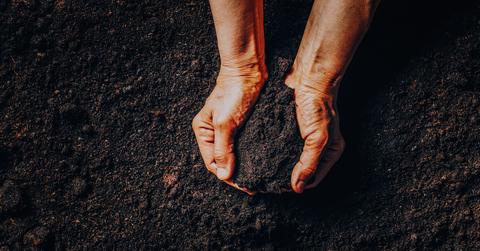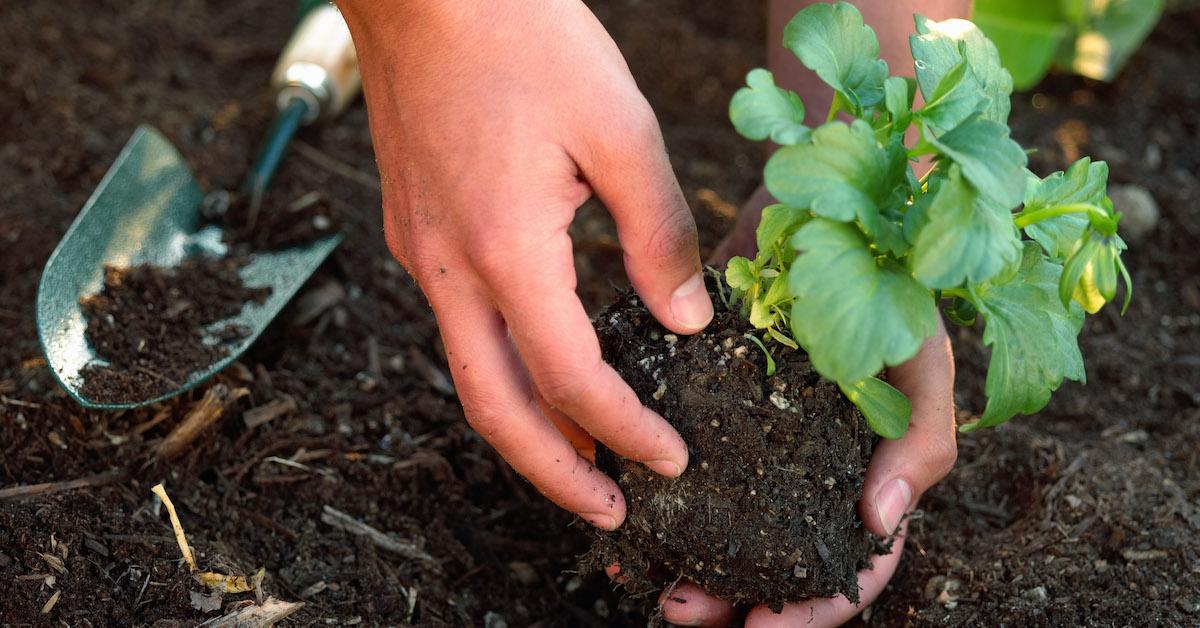Colorado to Become Second State to Legalize Human Composting
Updated April 29 2021, 4:33 p.m. ET

Following in the muddy footsteps of Washington state, Colorado is expected to become the second state to legalize human composting. This week, the Southwestern state passed a bill that would make it legal to compost dead human bodies, and now it awaits the governor’s signature.
But what exactly is human composting, and how does it work? Keep reading to learn more about the sustainable — yet controversial — burial practice, Colorado’s path to legalization, and what other states are expected to legalize human composting next.

Human composting is expected to be legalized in Colorado.
On Tuesday, April 27, 2021, the Colorado House passed SB21-006 with a vote of 45 to 18; last month, the Colorado Senate voted in favor of the bill unanimously, The Hill reported.
According to the bill summary, it allows “human remains to be converted to soil using a container that accelerates the process of biological decomposition” in Colorado. The bill prohibits any human composting businesses from: selling soil containing human remains; commingling the soil or human remains of multiple people without their consent; and using the soil to grow food.
Now, the bill just needs a signature from Gov. Jared Polis. Then, 90 days after the Colorado General Assembly adjourns, the bill will officially become law, as per The Denver Post. However, deceased Colorado residents will not be able to have a composting burial right away, as businesses and funeral homes will need some time to set up human composting infrastructure.
“I’m just really proud to give this option to people here in Colorado, which have the Colorado way of life in mind,” said co-sponsor Rep. Brianna Titone, a Democrat, as reported by The Denver Post. “And when people pass away, they can feel like they lived in Colorado and they can give back to Colorado and help the earth.”
What is human composting? Recompose is leading the way in Washington.
Human composting was legalized in Washington state in 2019, and the law went into effect in May 2020. The bill was inspired by Katrina Spade and her company Recompose, which uses the process of “natural organic reduction” to compost human remains into soil, which can then be used to regenerate the earth. Recompose opened in December 2020.
Here’s how Recompose’s human composting process works: The company takes a deceased body and places it in a cradle surrounded by plant material including straw, alfalfa, and wood chips, and places the cradle in a vessel surrounded by more plants.
Every day for 30 days, a Recompose employee mixes the deceased body with soil. At the end of the month, the staff looks through the soil for any non-biodegradable items, such as prosthetics, implants, and dental fillings, and recycles them, if possible. At that point, all that is left is nutrient-rich topsoil, which Recompose packages up to give to the friends and family of the deceased. They can then use that topsoil to grow plants, keeping the memory of the deceased alive.
According to Recompose, each person composted with the company’s process saves 1 metric ton of CO2 from entering the atmosphere, and a Recompose burial uses just one-eighth of the energy that traditional burial or cremation uses.
As of now, Recompose is only operating in Washington — but a big part of the company’s mission is supporting bills to legalize human composting in other states where legalization is on the table, including New York, California, and Oregon.
It seems likely that Recompose will open facilities in these states once human composting becomes legal in them, as the company recently tweeted “Help bring Recompose to Oregon” alongside information on the state’s bill.